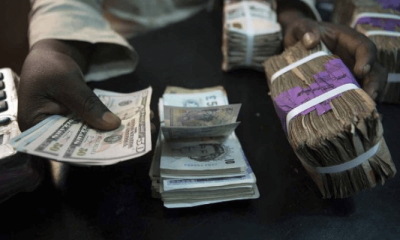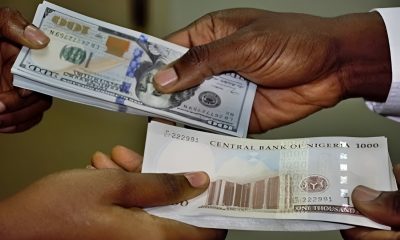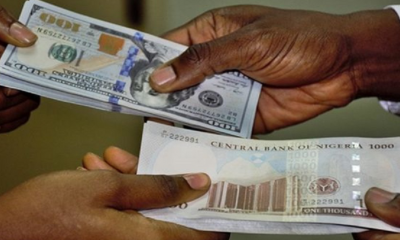The Central Bank of Nigeria is said to have spent a whopping $2.04 billion alone in May to sustain the improved liquidity and relative stability in the market.
Funny enough, the average exchange rate of the naira to the US-dollar, at the inter-bank segment, was N306.95/US$, representing an appreciation of only 0.003% in the same month.
The average exchange rate at the BDC segment, at N360.00/US$, depreciated by 0.3% relative to the level at the end of the preceding month. At the “Investors” and “Exporters” (I&E) window, the average exchange rate of the naira vis-à-vis the US dollar, was N360.74/US$ indicating that naira appreciated by 0.01%.
According to the latest CBN’s monthly economic report covering the month of May 2019, Nigeria’s apex bank sold the whopping sum of $2.04 billion to authorised dealers in May, compared to $2.43 billion supplied in the previous month.
A breakdown of the Central Bank’s intervention in the foreign exchange (FX) market in the month of May 2019 reveals that interbank sales fell by 10% to $0.09 billion, to the level in the preceding month.
Currency sales to the Bureau De Change (BDC) rose by 6.3% and estimated at US$1.05 billion while swaps transactions remained unchanged from the previous month and it was estimated at $0.01 billion.
Meanwhile, while the CBN is bent on continuing its intervention in the FX market, burning through the reserves to stabilize the Naira.
Analysis of data obtained from the Central Bank of Nigeria shows that in the last month, despite an increase in forex receipts, external reserves depleted by US$48.3 million.
The gross external reserves stood at US$44.85 billion, at end May 2019, indicating an increase of 0.9% above the US$44.47 billion recorded at end-April 2019. A breakdown of the external reserves by ownership showed that the share of Federation reserves was US$0.004 billion (0.01%).
Federal Government reserves were estimated at US$7.37 billion (16.4%) while CBN’s reserves stood at US$37.47 billion (83.6%) of the total.
The increase was mainly due to rising receipts from foreign exchange purchases, receipts from oil-related taxes, receipts from joint venture companies (JVC cash call funding) and receipts from third parties.
The external reserves position could cover 6.5 months of import cover for goods and services, and 10.4 months for goods only, using the import figure for the first quarter, 2019.
While the intervention will keep the naira stable, for now, analysts are of the opinion that it is only a matter of time before the CBN will float the naira in the face of rising tension in the Middle East, and on-going trade war capable of crashing oil prices which is Nigeria’s main source of FOREX earnings.

 Health & Fitness6 days ago
Health & Fitness6 days ago
 Aviation7 days ago
Aviation7 days ago
 Aviation7 days ago
Aviation7 days ago
 Aviation7 days ago
Aviation7 days ago
 Aviation6 days ago
Aviation6 days ago
 Featured4 days ago
Featured4 days ago
 Crime4 days ago
Crime4 days ago
 Inspirational5 days ago
Inspirational5 days ago













